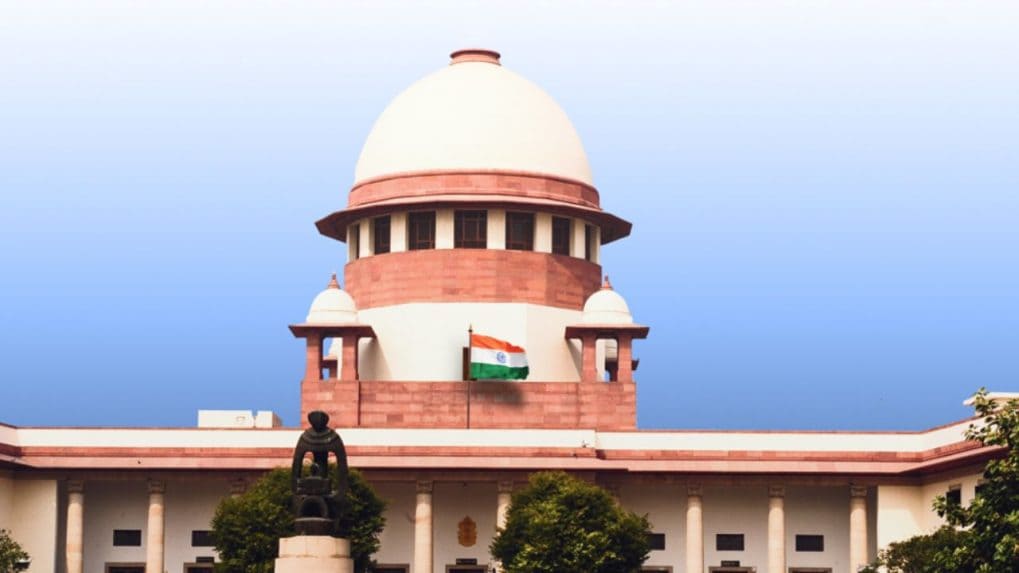How it Works
WPP, Havas, Omnicom: Are advertising’s biggest holdcos recasting agencies as AI Operating Systems?

In a major shift of position, the Government of India has altered its submissions before the Supreme Court in the ongoing case concerning the applicability of Goods and Services Tax (GST) on online gaming — a dispute pegged at nearly ₹2.5 lakh crore, making it one of the largest tax litigations in the country’s history.
During earlier hearings, the Centre had repeatedly maintained that “betting and gambling” fell within the State List under the Constitution. However, following the enactment of the Promotion & Regulation of Online Gaming Act (PROGA), 2025, the Union government is now contending that online gaming and betting fall squarely within the Union List, giving it legislative competence over the sector.
On August 25, the government sought an additional week to file supplementary submissions in court. This came after the division bench of Justices J.B. Pardiwala and R. Mahadevan reserved its verdict on August 12 following marathon hearings in a batch of petitions filed by gaming companies such as Gameskraft and Delta Corp, along with industry bodies including the All India Gaming Federation (AIGF), E-Gaming Federation (EGF), and the Federation of Indian Fantasy Sports (FIFS).
In its earlier rejoinder, the government had stated: “The Department is really not concerned with whether the amendments brought out by the respective state governments are valid or not. However, the Department is aggrieved only to the extent that the above judgements have held that the expression ‘betting and gambling’ can only mean ‘betting on gambling’ i.e., ‘betting on games of chance’.”
But post-PROGA, the Centre through Additional Solicitor General N. Venkataraman on September 1 in its rejoinder submission has added a new layer to its argument: “However, out of abundant caution, the Revenue submits that merely because betting and gambling could be regulated by the States under Entry 34 List II, whether online gaming played with stakes having a impact Pan India impact beyond the territorial boundaries of a State and beyond the national boundaries of India and whether the pith and substance of any Union Legislation regulating such a transaction was neither the subject matter of the High Court decisions nor the subject matter of dispute in the present batch of matters.”
A senior executive from a leading real-money gaming federation sharply criticised this shift: “The Union of India is now conveniently changing its stand before the Supreme Court to usurp legislative power on online gaming that is solely with the states to itself. They are changing their submissions probably realising that they are on a weak footing in the challenge to the new Promotion & Regulation of Online Gaming Act pending before the Karnataka High Court.”
Notably, A23’s parent company, Head Digital Works, is currently challenging PROGA, 2025 in the Karnataka High Court. Industry stakeholders believe the Centre’s altered stance is designed to strengthen its hand in ongoing and future legal battles, especially on the contentious question of State versus Union powers to regulate online gaming.
During the August 12 hearings, senior counsels including Arvind Datar, Dr. Abhishek Manu Singhvi, Gopal Sankaranarayanan, Tarun Gulati, Balbir Singh, and C. Aryama Sundaram had argued extensively that online skill-based games cannot be equated with “betting and gambling” as defined under the Constitution. They cited landmark judgments in the RMDC and K.R. Lakshmanan cases to back their position.
The industry has also opposed the Revenue Department’s attempt to classify stakes in online rummy as “actionable claims” under GST law, terming it legally unsustainable. Similarly, the government’s reliance on the “House Advantage” concept for casino taxation was dismissed by counsel as a notional and flawed calculation.
The rejoinders had urged the Supreme Court to quash the tax demands, asserting that both tax jurisprudence and constitutional interpretation clearly distinguish games of skill from gambling. The apex court’s ruling in this case will not only decide the fate of a massive tax demand but could also set a precedent for how India regulates the rapidly expanding online gaming industry.
From purpose-driven work and narrative-rich brand films to AI-enabled ideas and creator-led collaborations, the awards reflect the full spectrum of modern creativity.
Read MorePraveen Someshwar, Managing Director and CEO of Diageo India, joins the Grand Jury of the Storyboard18 Awards for Creativity, highlighting the awards’ focus on work that blends cultural relevance with strategic and commercial impact.